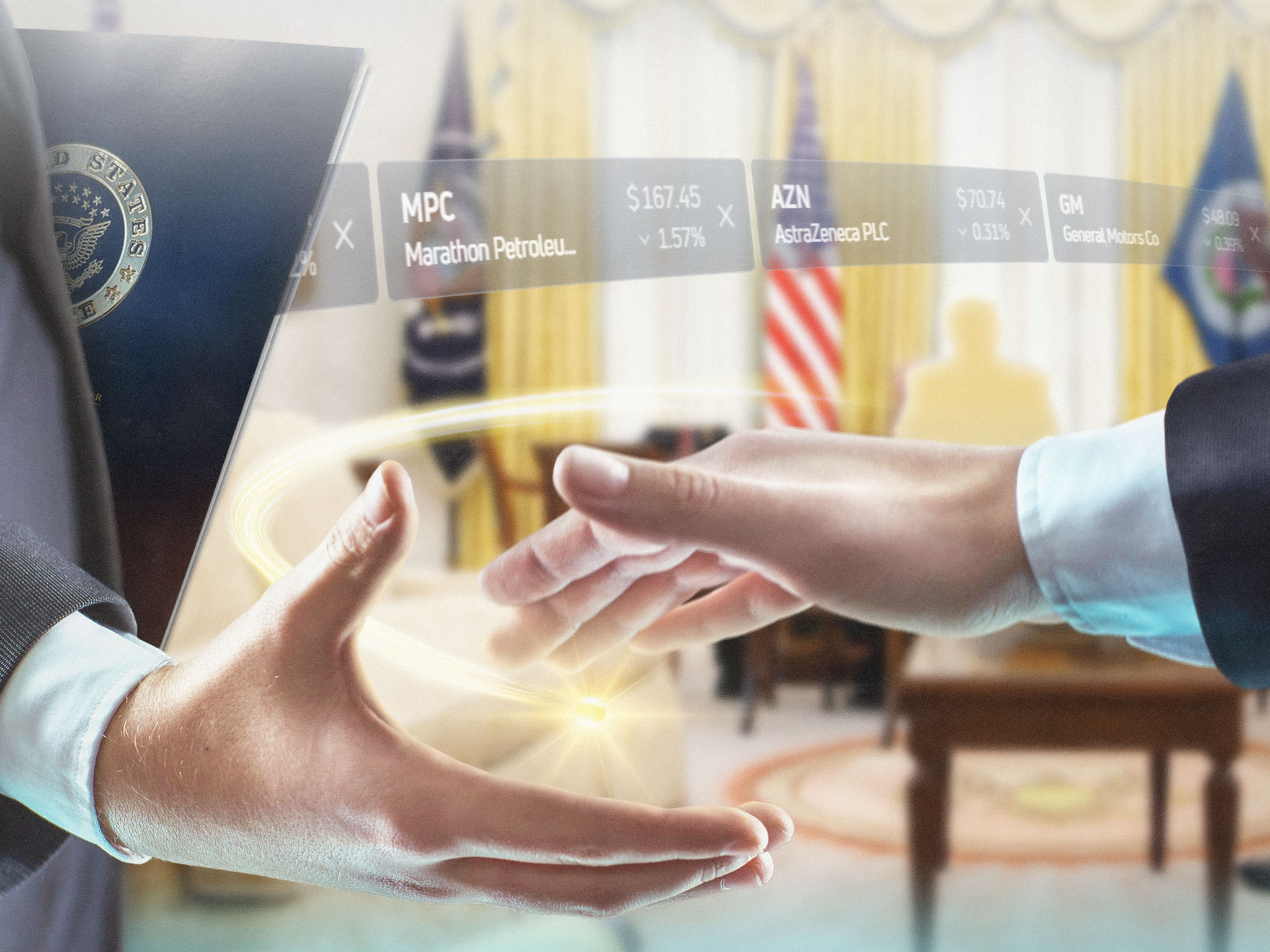A history of government intervention in companies and the outlook ahead

The issue of government intervention with US companies has come to the fore.
Looking back, the government has occasionally intervened strongly in companies’ affairs, but it has generally been limited to times of crisis, unlike recently.
Perhaps the biggest government action came in 1946, when coal workers went on strike. Coal supply was shrinking rapidly, severely damaging industrial activity nationwide. The country’s post-World War II economic recovery seemed at risk. President Harry Truman directed the government to seize the mines and ordered workers to return to their jobs.
Truman acted again in 1952, temporarily nationalizing the steel industry, amid concern that a potential strike by steelworkers could threaten the Korean War effort.
Fast forward to the financial crisis of 2008. The government took stakes in several major companies to avoid a financial and economic meltdown. That included General Motors (NYSE: GM), American International Group insurance (NYSE: AIG), mortgage lenders Fannie Mae and Freddie Mac, Citigroup (NYSE: C) and Bank of America (NYSE: BAC).
There is precedent for government intervention overseas also. Other nations have golden shares in companies, just like the US. That includes the UK, with a stake in jetfighter engine maker Rolls Royce; Brazil, with a stake in plane maker Embraer (NYSE:ERJ); and China, with an indirect stake in TikTok’s owner ByteDance.
Outlook for the future
The question now is what will the US government’s stance be toward foreign takeovers of US companies going forward. That’s difficult to say partly because politics has entered the equation. For example, it could easily be argued that the domestic steel industry isn’t important for national security. But it is important politically.
Two of the biggest purchases of US companies by foreign brethren came in 2020. UK drug giant AstraZeneca (NASDAQ: AZN) bought Alexion Pharmaceuticals for $39 billion. And Japan’s retailer Seven and i holdings purchased Marathon Petroleum’s (NYSE: MPC) Speedway gas stations for $21 billion.
There are some foreign companies now pursuing deals to purchase US companies that haven’t been approved by the government yet. The exact number of such deals is unavailable, as some aren’t publicized.
Among known examples, Japanese conglomerate Mitsubishi is far along in negotiations to snap up the assets of US energy investment firm Aethon Energy Management for about $8 billion, knowledgeable sources told Bloomberg.
Also, the Canada Pension Plan Investment Board (along with US private equity firm Global Infrastructure Partners) has agreed to buy US utility Allete (NYSE: ALE) for $6.2 billion.
In addition, Canadian alternative investment firm Brookfield (NYSE: BN) is awaiting regulatory approval of its $9 billion deal to buy Colonial Enterprises, operator of the biggest US fuel pipeline.
Commonalities, TikTok saga
One common thread to these transactions: the buyers are domiciled in countries that are allies of the US. The government’s biggest worry now is China. But companies from allied nations seem to have a better chance for deal approval.
Speaking of China, ByteDance for years has received pressure from the US government to restructure or sell TikTok’s US operations to a U.S. company. Microsoft (NASDAQ: MSFT) and Oracle (NYSE: ORCL) talked to ByteDance about deals in the past, but couldn’t reach an agreement.
On Tuesday, President Trump extended a June 19 deadline for ByteDance to divest TikTok’s US assets for 90 days.
Looking at the big picture for foreign companies interested in buying a US company, they would do well to keep politics in mind. US regulators might give foreign acquirers a harder time if they’re in industries that are politically important, such as steel.
Of course, any healthy capital markets include vibrant merger and acquisition activity. And deal approval by local regulators is a significant part of that. It appears that there has been a slowdown of deals and approvals recently in the US. It remains to be seen whether the new administration will facilitate, approve or torpedo takeover deals.
